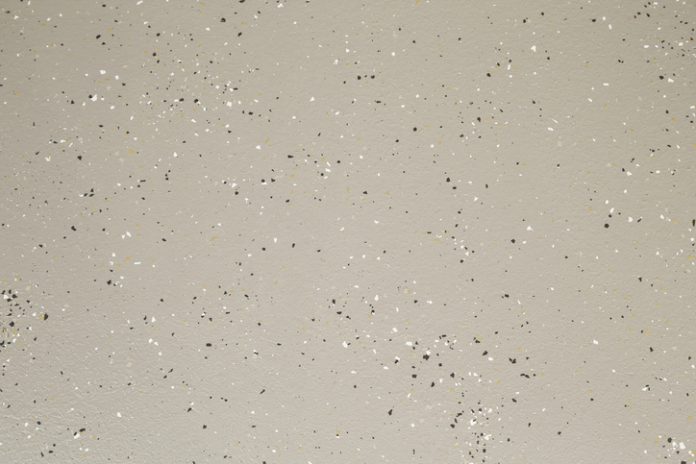Commercial facilities may face a lot of footfall and rigorous use. Facilities may require more durable and hardwearing flooring solutions for restaurants, hotels, stadiums, and other similar places. Commercial epoxy flooring is one of the better options to be used for commercial floors, others being urethane cementing and polished concrete. In some cases, epoxy flooring can be the best option when you make a choice based on factors including stain/chemical resistance and safety, among others.
Know More About Epoxy
Epoxy resin has both natural and chemical components and resins. The distinct parts and substances of the epoxy may combine to bring to the application many different desired properties and qualities. The parts may form a solid and durable plastic covering that can be applied to commercial concrete floors for a strong protective cover. The epoxy application can also be made aesthetically pleasing and beautiful when it is combined with quartz pieces of different colours and vinyl chips. The floors can also be slip-resistant and safer by combining epoxy with polymer grits. Epoxy flooring is popular as a flooring application in many different commercial establishments, including:
- Showroom galleries
- Hallway walkaways
- Commercial kitchens in hotels and restaurants
- Locker rooms
- Museums
- lobbies of corporate houses
- Stadiums
- Retail stores
- Greenhouse hotels
Application and Curing of the Epoxy Floors
Many of the protective and durable qualities of epoxy flooring depend on the application and curing process as well, apart from the product itself. All the factors must be considered carefully, and the process is not hurried. Some of the important aspects of epoxy flooring are listed and described below:
- Temperature: epoxy should be used at an optimum temperature for flooring. For instance, if it is too hot or warm, bubbles may get formed after curing, and the application may start to peel off. The extreme coldness will also alter the reaction time (also called pot time) of the resin.
- Environmental conditions: if the environmental temperature is warm, the application and curing process must be completed in less time. You have more time to work with epoxy resin and flooring in colder temperatures.
- Humidity: colder temperatures can be affected by relative humidity. Water droplets may form on the epoxy application before the final curing is done. If finishing is improper, it may cause issues, including reduced gloss, blushing, and other defects.
- Levelling: temperatures may impact also impact the application levels. The epoxy resin application may not settle well enough in colder temperatures due to issues with viscosity and flow.
Apart from considering the above-given factors, it is also important to prepare the floors and surfaces well before the epoxy is applied. For instance, processes like hot blasting or grinding may be used to remove any sealant that remains on the concrete floors. After the coats are removed, the moisture test is carried out to find out the suitability of the surface for epoxy flooring. Efflorescence (a white powder that gets formed on the concrete surface) and the presence of dark areas are indications of moisture.
The surface must also be cleaned to remove all kinds of dirt, grease, and oil. If you want a seamless and perfect epoxy application and floor, you should also fill all the cracks. The parts of an epoxy application are mixed and then applied to the flooring surfaces.
Benefits of Epoxy Flooring
Apart from the flooring, epoxy is also used for manufacturing adhesives, primers, paints, and plastics. The epoxy material has many properties to make it a suitable and long-lasting flooring solution for heavy-use commercial floors. The essential benefits of epoxy flooring are listed below:
- Durability: the two-part composition of epoxy flooring can provide a protective cover to protect the flooring from all kinds of impact. The protective cover stands good against impacts due to the driving of forklifts/vehicles, the weight of heaviest machinery, the moving of heavy equipment, and others.
- Safety: additional substances can be added to epoxy to make it safer and resistant to slipping. Deterioration risks and the risk of accidental impairment also reduce by using epoxy flooring.
- Longevity: epoxy flooring has all the substances and qualities to last longer than other flooring materials. With proper installation and care, epoxy flooring may last up to 20 years and even more in commercial establishments.
- Easy Maintenance: epoxy flooring can be easily cleaned as it repels dirt and other undesired materials. You can clean the epoxy floors by using a dirt mop and do spot cleaning by using cleaning solutions (non-abrasive) or water. Detergents can also be combined with water for cleaning commercial epoxy floors.
- Waterproof and Resistant to Chemicals: apart from being resistant to various chemicals, the epoxy flooring is also waterproof. Therefore, epoxy floors also resist the growth of mildew, mould, and other harmful pathogens, including bacteria. The waterproof seal of epoxy flooring also makes it resistant to stains and many kinds of chemicals.
Conclusion
Epoxy floors offer distinct advantages and are the best materials for commercial floors. You should prefer epoxy when installing a durable and long-lasting flooring material in your commercial establishment. It can also resist chemicals, stains, and pathogen growth and keep your establishment safe. However, ensure that you hire professional epoxy flooring installation services only for the best results.














